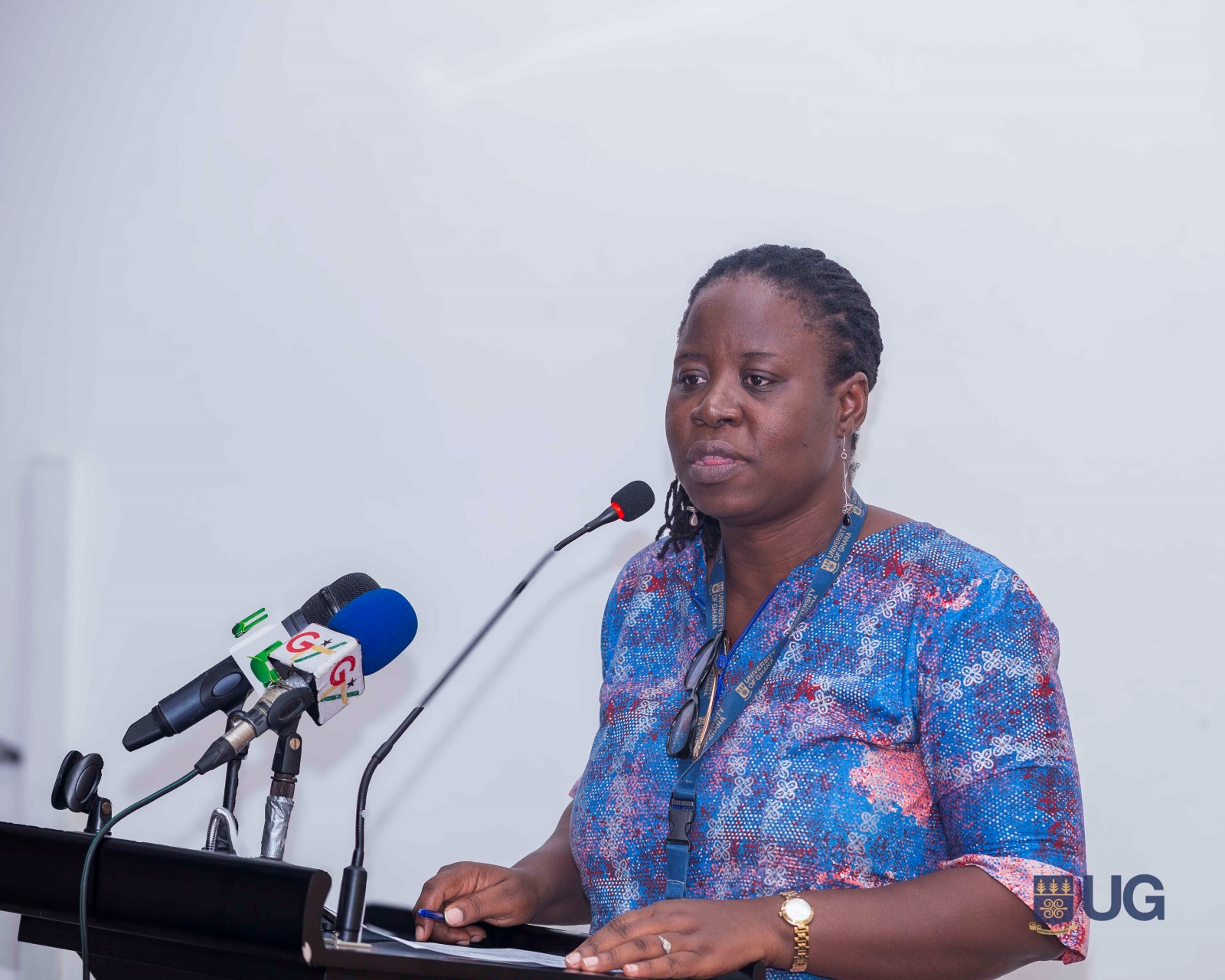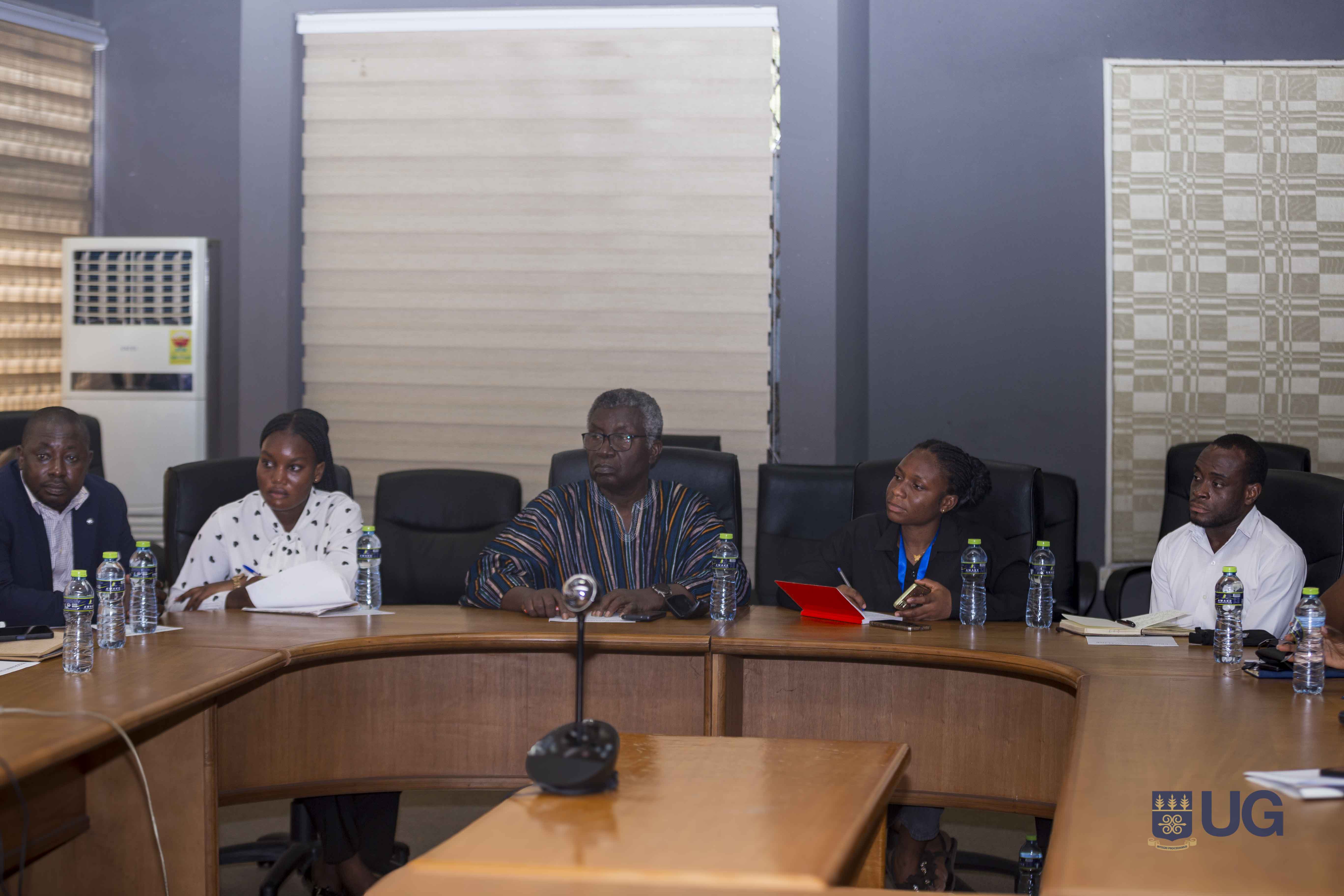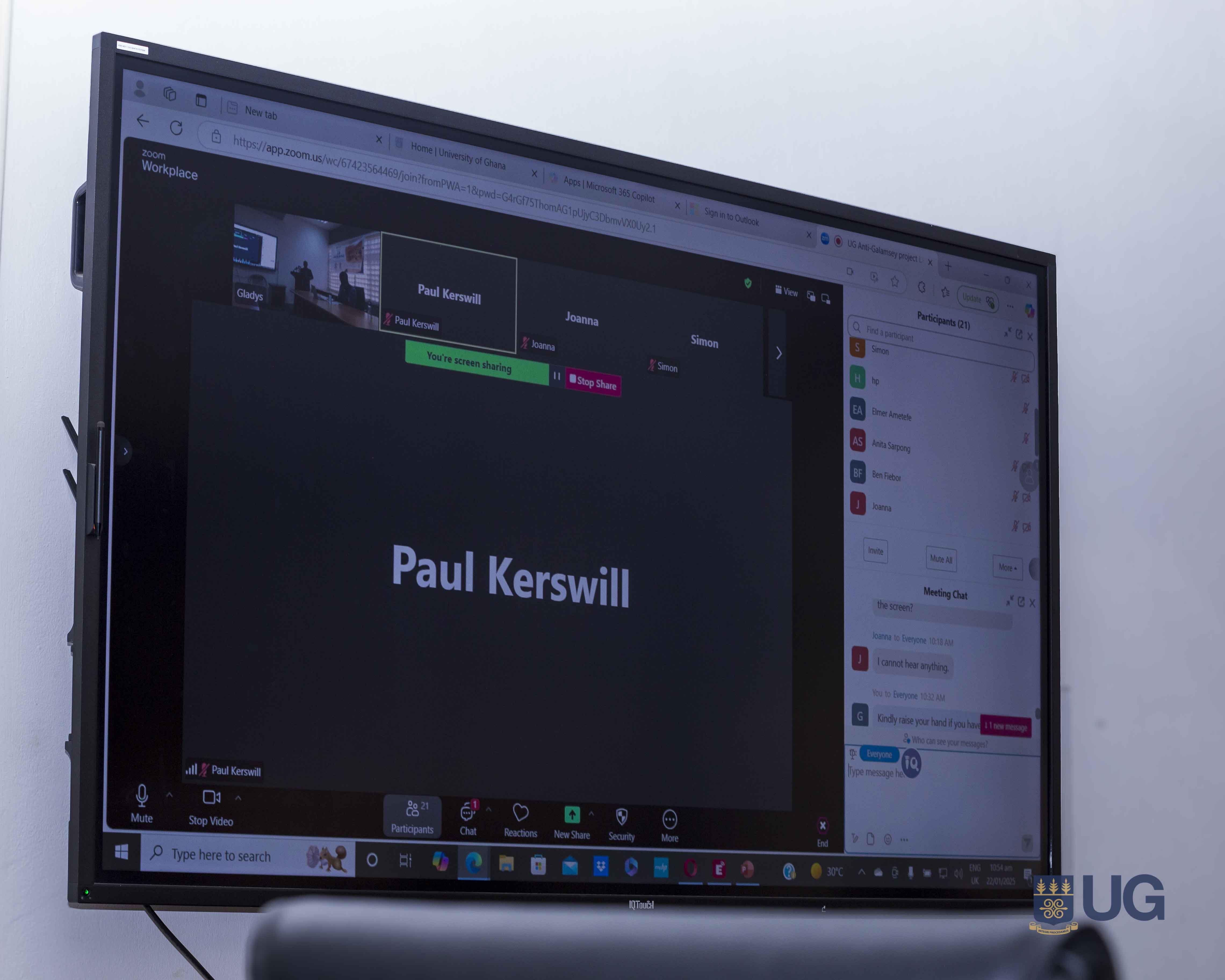Anti-Galamsey Project Launched to Combat Illegal Mining Through Research and Advocacy
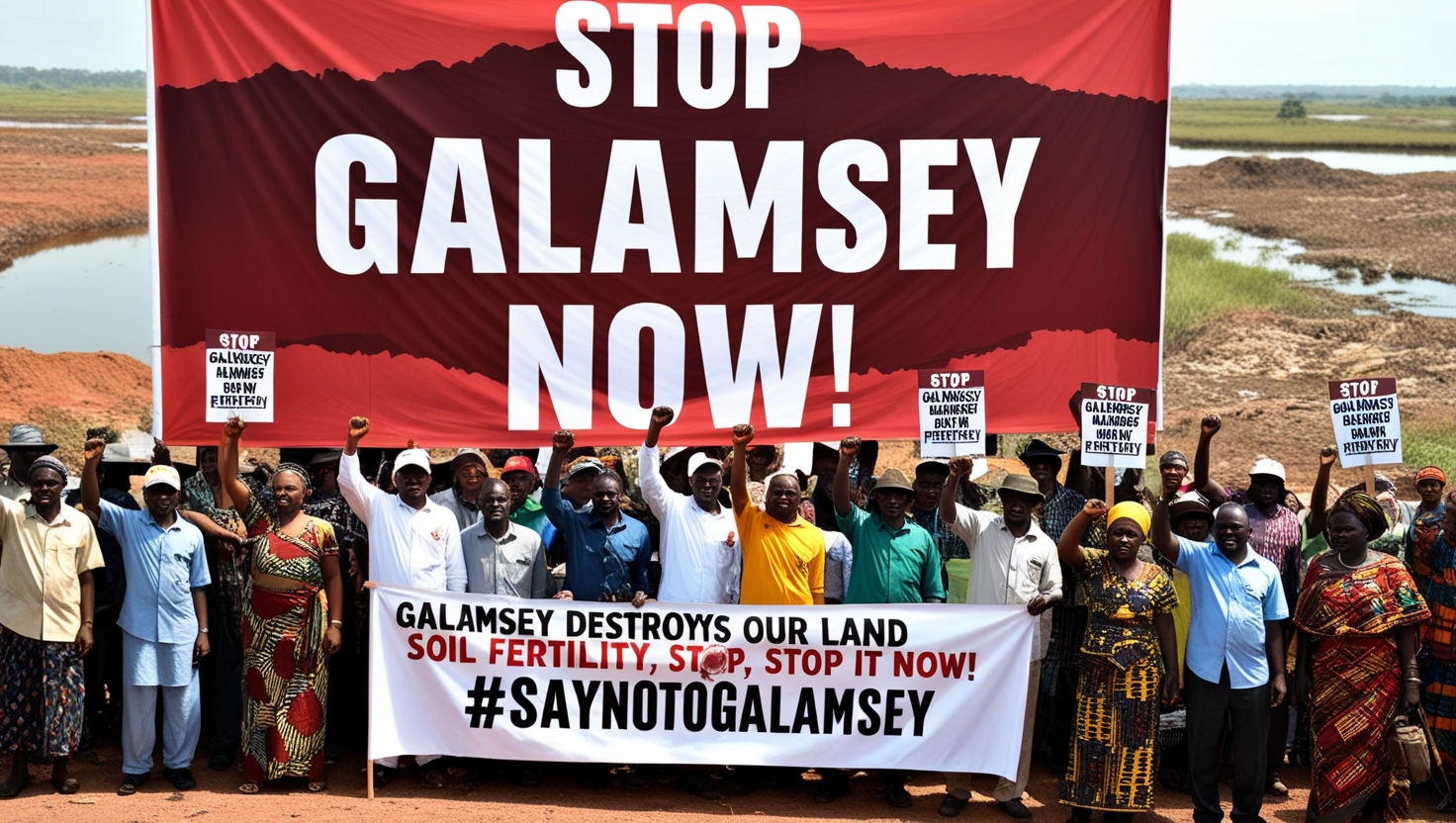
In line with the University's efforts to engage in multidisciplinary research that addresses societal challenges, a two-year project has been launched to tackle the pressing issue of illegal mining in Ghana.
Led by a team of five researchers from the University, the Anti-Galamsey Project seeks to address the menace of illegal mining through research, advocacy and the application of linguistic and cultural strategies.
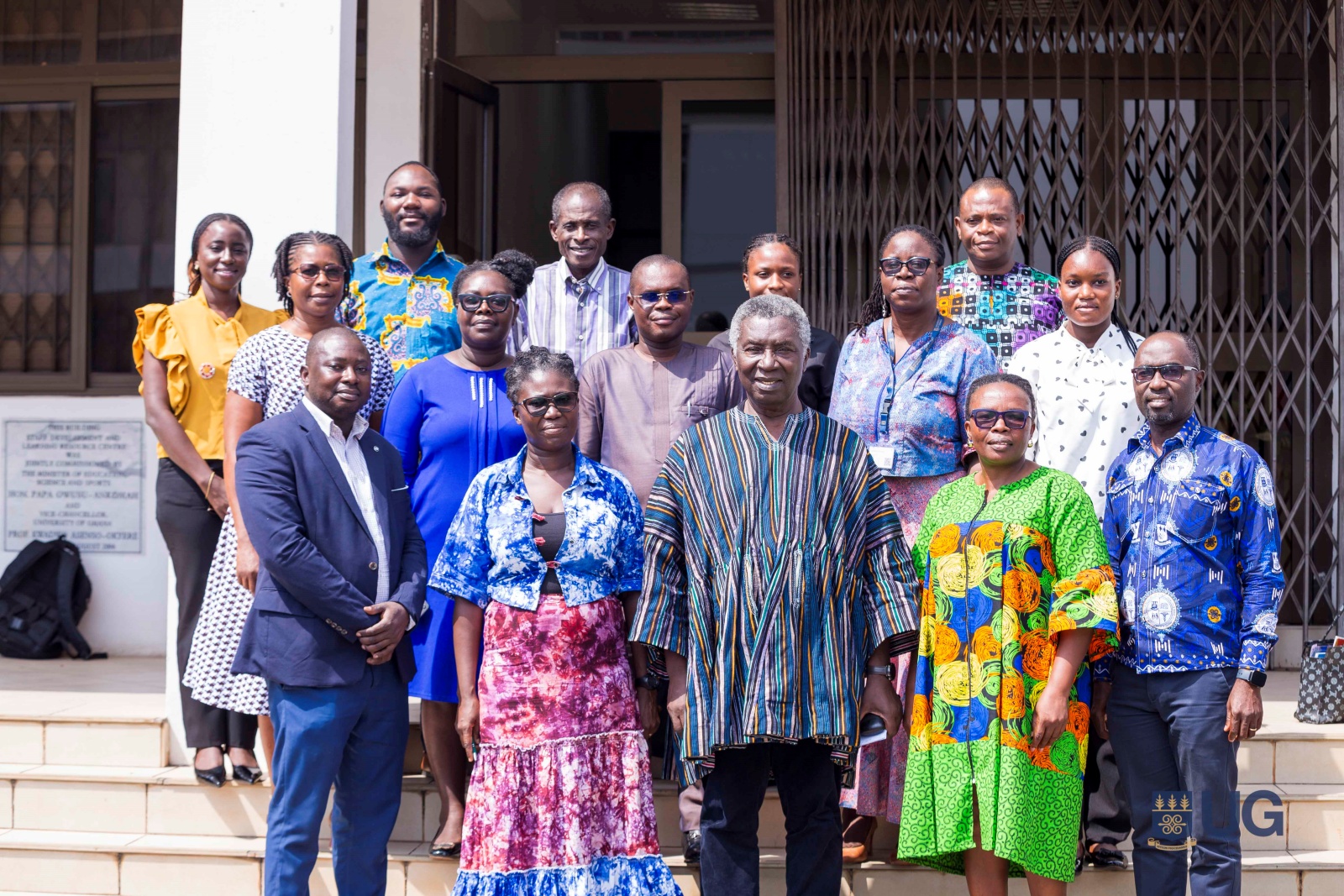
Operating under the theme, "Sharing Galamsey Research Findings and Doing Advocacy to Stop Galamsey in Ghana," the project is envisioned to influence public attitudes, change behaviours and promote sustainable alternatives for affected communities.
The adoption of a holistic approach is also intended to provide actionable insights and practical strategies to combat illegal mining, which poses severe threats to communities, ecosystems and livelihoods across the country. This project underscores the University's commitment to using academic expertise to drive national development and promote environmental sustainability.
The project is led by Prof. Gladys Nyarko Ansah from the Department of English, with team members including Prof. Richmond Nii Okai Aryeetey (FGA) of the School of Public Health, Prof. Abena Animwaa Yeboah-Banin, Head of the Department of Communication Studies, Dr. Margaret Ismaila of the Department of Linguistics and Mr. Bright Frimpong of the Department of Geography and Resource Development. The initiative is funded by the Research and Innovation Directorate.
Commenting on the project’s objectives during the launch event, Prof. Nyarko Ansah laid emphasis on the importance of leveraging language to engage communities effectively. “We aim to raise awareness by sharing research findings, using appropriate cultural and linguistic frameworks. The project also seeks to empower communities to find sustainable livelihood alternatives while ensuring a bottom-up approach to advocacy,” she explained.
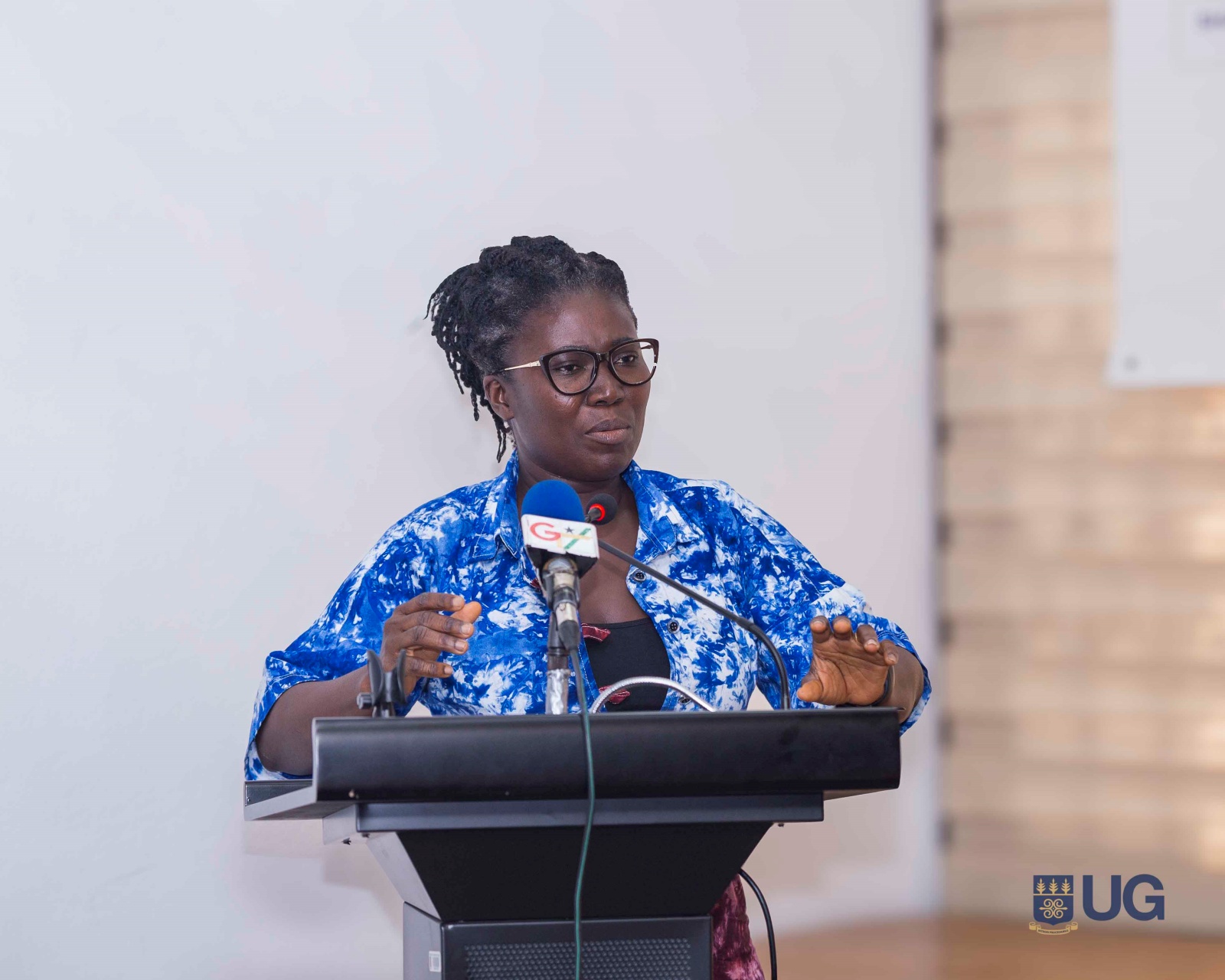
Adding her perspective on the current state of the fight against illegal mining, Prof. Nyarko Ansah highlighted how language shapes the discourse surrounding galamsey. She noted that much of the rhetoric has been framed as a “war discourse,” with phrases like, “we are at war,” “we need to fight,” and “we are in crisis; we need to take action.”
While acknowledging the urgency of the situation, she pointed out that such language can create resistance by establishing two opposing sides, supporting a top-down approach that often alienates communities and creates unnecessary enmity.
Prof. Nyarko Ansah advocated for a shift in strategy, suggesting the adoption of lessons from the fight against COVID-19, which relied heavily on collaboration and consensus building. She emphasised the importance of community mobilisation and a bottom-up approach to addressing galamsey, ensuring that communities have a voice in the process.
She also outlined key components of the project, including media campaigns that will produce compelling content for public dissemination and town hall meetings to make room for dialogue and active youth involvement. These efforts aim to influence attitudes, encourage sustainable practices and strengthen community participation. She expressed gratitude to the Research and Innovation Directorate(RID), the National Commission for Civic Education (NCCE) and other project partners for their invaluable contributions to the initiative so far.
Chairing the launch, Prof. Kwabena Frimpong-Boateng, FGA, former Minister for Environment, Science, Technology and Innovation, described galamsey as a complex issue with widespread implications. “Illegal mining impacts water bodies, forest reserves and involves directing mining waste into rivers. It is also exacerbated by the involvement of foreigners in small-scale mining,” he said.
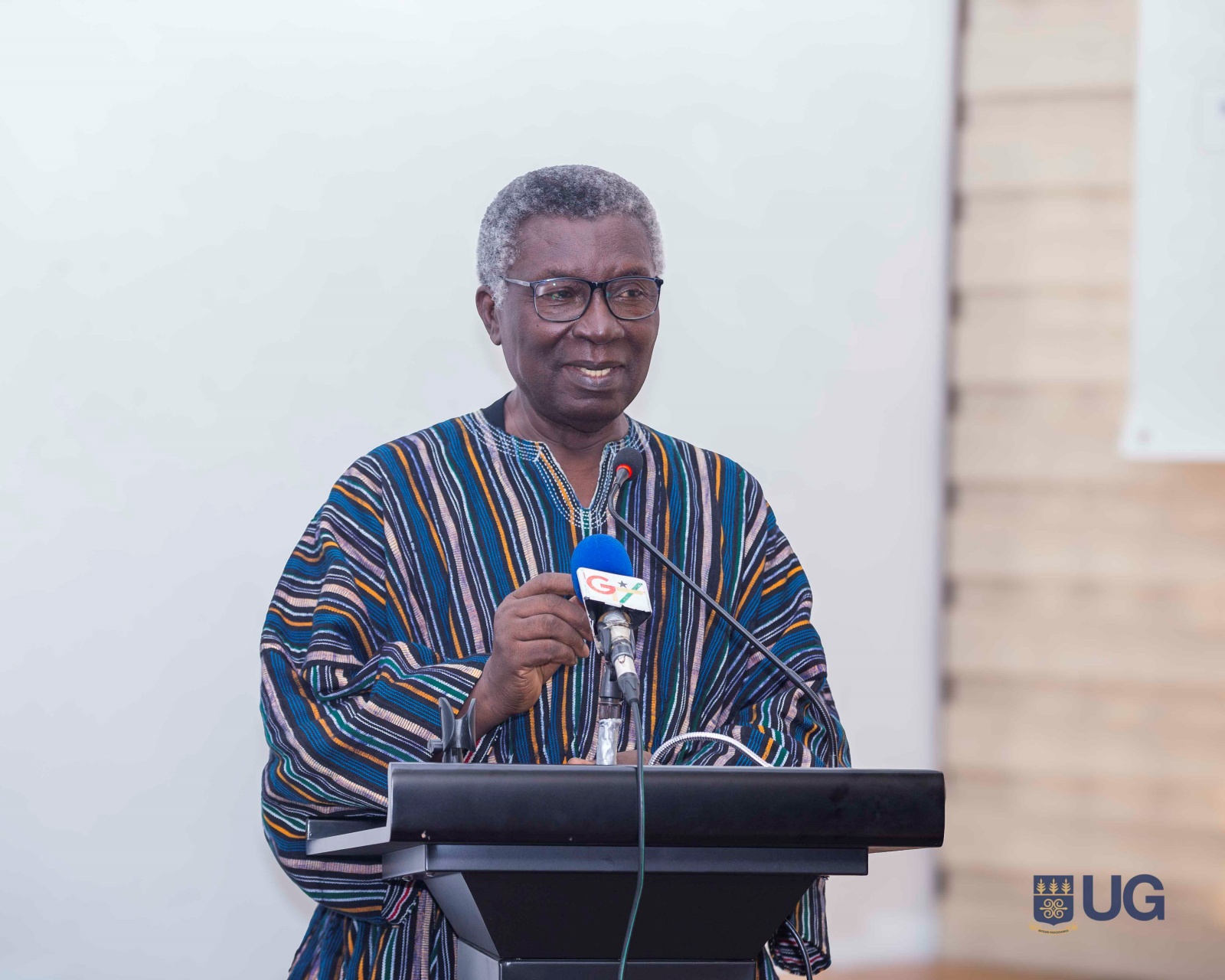
The former Chairperson for the Inter-Ministerial Committee on Illegal Mining lamented the complacency of political leaders in addressing the crisis, stating, “Don’t trust politicians when it comes to this business. When they are under pressure from the grassroots, they will change their policies without informing those leading the campaign against illegal mining.” Prof. Frimpong-Boateng expressed confidence in the project’s approach and pledged his full support, offering resources such as videos and pictures to aid its implementation.
Prof. Richmond Aryeetey, FGA, a member of the project team, presented an overview of actions taken so far to combat galamsey. He acknowledged various interventions, including government programmes, arrests, alternative livelihood initiatives and community mining schemes. He highlighted the need for more innovative and community-centered approaches to address the issue effectively.
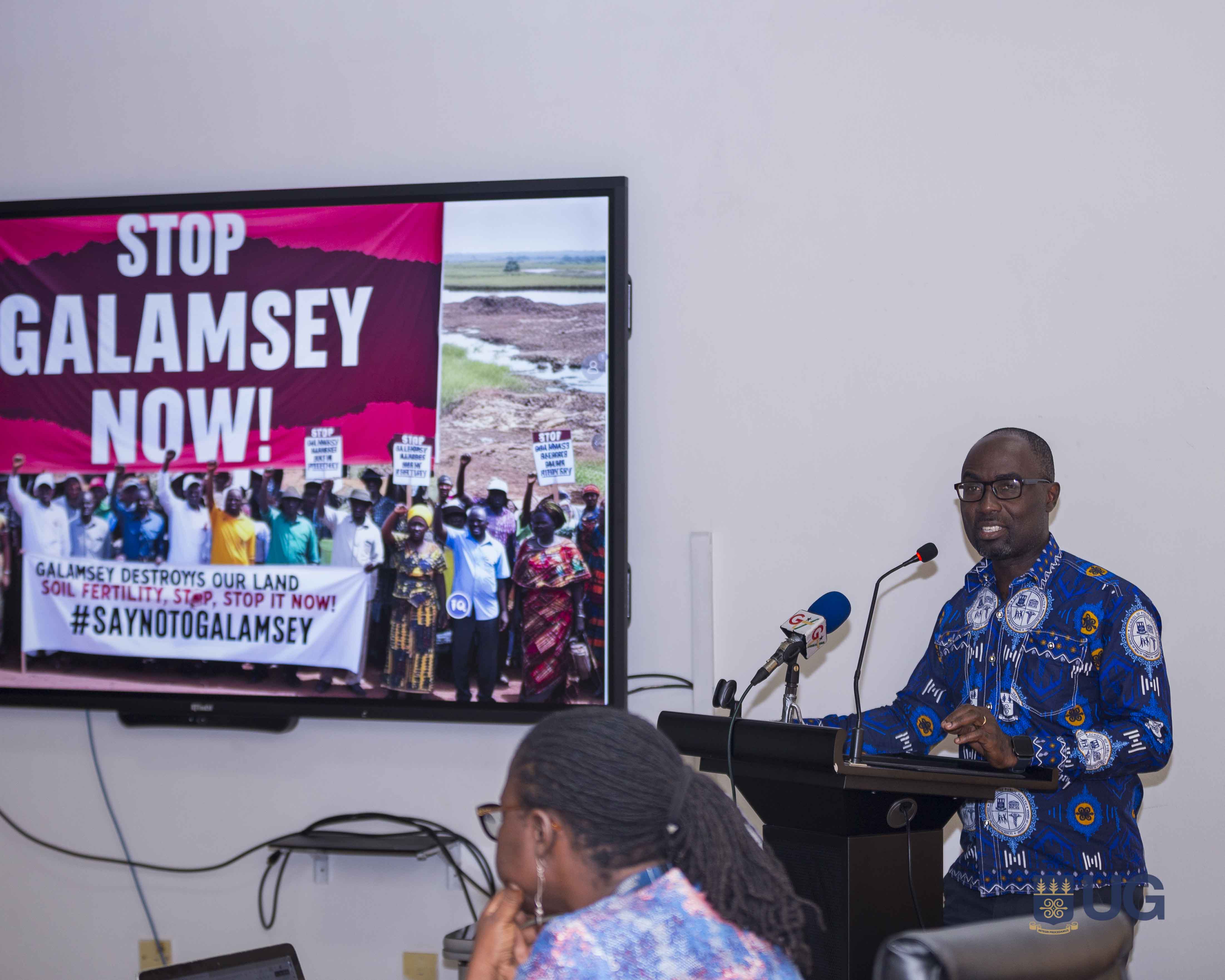
“There is a lot that has been done, particularly in advocacy, to raise awareness about the scale of galamsey and its impact on livelihoods and health. Academia has also contributed through research and training,” he said. He noted, however, that many efforts from political, traditional and faith-based leaders have not translated into concrete action, reducing them to verbal commitments.
The project will incorporate media campaigns with compelling content, town hall meetings and youth involvement to promote sustainable solutions. Representing the University Teachers Association of Ghana (UTAG), the UG Chapter Secretary, Dr. Jerry Joe Harrison, commended the project team, reaffirming the association’s ongoing commitment to addressing the galamsey menace.
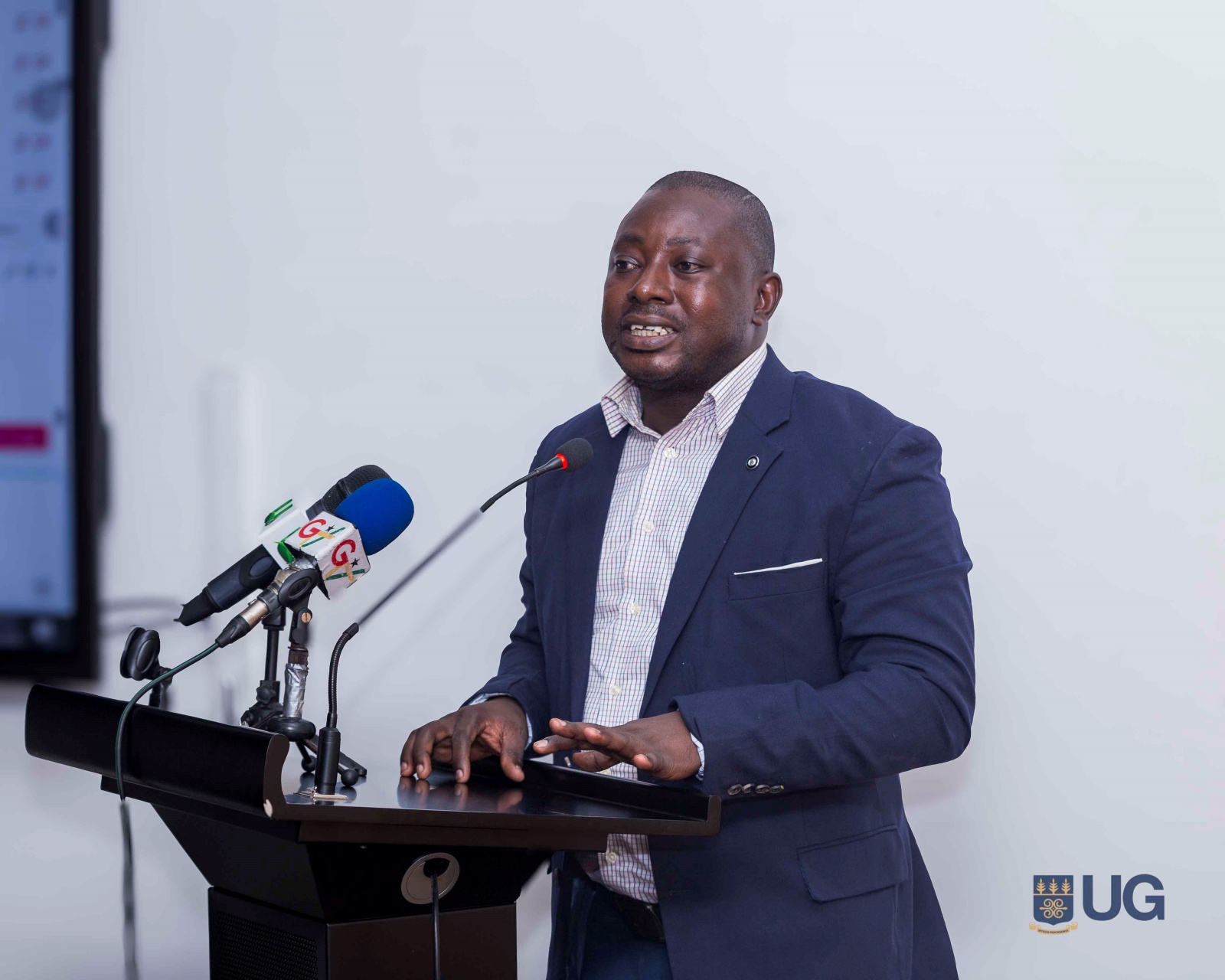
The project, which combines research, advocacy and community engagement, seeks to complement existing government and civil society efforts to combat galamsey, ultimately engendering sustainable development and environmental stewardship across affected communities.
